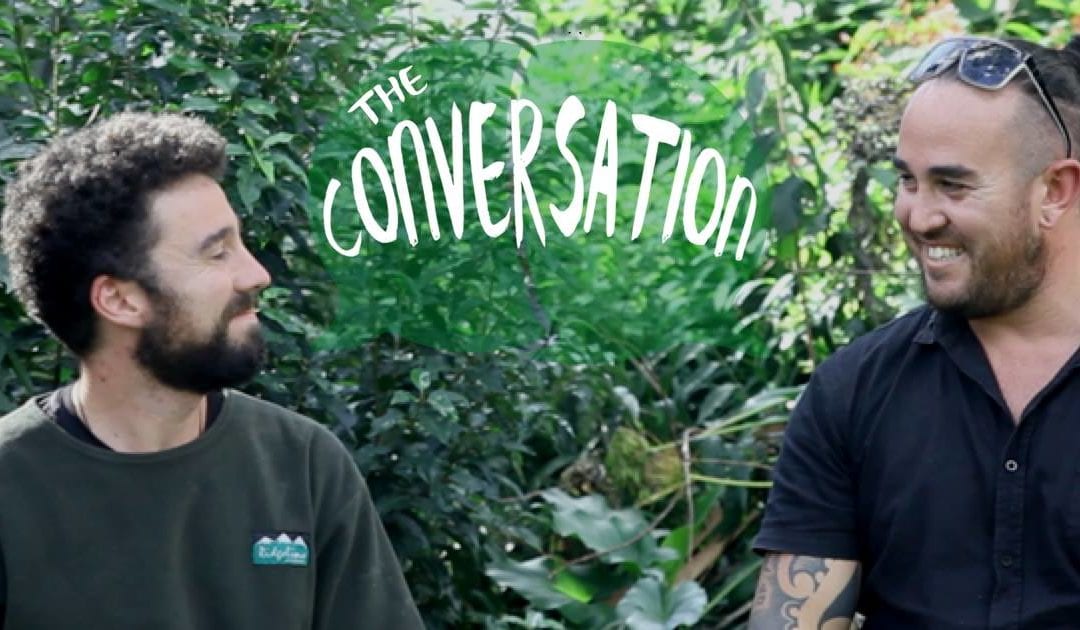Earlier this month we shared a blog post about how Movember, a month long campaign to bring awareness to the physical and mental well-being of all men. It was in this post that we discovered some confronting statistics that did their job to not only encourage us to ask questions but to start having real and authentics conversations with one another about how we can start the journey of understanding why 3 out of 4 suicides in Aotearoa are men and therefore ultimately creating the resources so desperately needed to help those suffering in silence.
So how can we begin to understand a little of the why behind this statistic? We thought we’d reach out and consult with one of the loudest voices creating change right now, Sam O’Sullivan from Tough Talk NZ, a Clinical Psychologist who is traveling up and down the country to sit down with Kiwi men to hear their stories/korero with them about their struggles, their lessons and ultimately how they choose to rise and take care of themselves from the inside-out. He is a man with a camera, a trusty van, and the powerful mission of decreasing suicide and violence in New Zealand with his video series “The Conversation”. You can read more about Sam and his journey, find tools and resources and watch his work so far here.
Q: Sam, 3 out of 4 suicides are Kiwi men which is heartbreaking. Why do you think that is?
A: I think there are three factors at the root of this statistic. The first two are common beliefs people hold about men, which have been socially constructed and interact with each other in a devastating way. I don’t want to paint all men with the same brush, so I acknowledge that the beliefs don’t apply to all men and can apply to women too.
1. Many people believe that certain accomplishments define the “success” of a man: he should be a provider in terms of making lots of money, find an “attractive” partner, develop physical prowess, and ultimately be a leader. Trying to live up to this narrow belief of success can lead to negative emotions when men don’t fit it or are struggling with factors they can’t control; often some form of loss, such as relationship breakup, loss of employment, injury, grief etc. To not be successful in this commonly believed way often makes men feel like they’ve failed as a person. Sometimes it’s hard for men to see a way to become successful, so they give up.
2. Men are taught that being strong means not showing feelings and numbing themselves to them. Men discover that it sometimes useful to harden up a little when doing something physically challenging, but this method seems to have been mistakenly applied to emotions too. When we don’t allow ourselves to feel emotions like sadness, fear, or stress, they will find a way out, often quite suddenly in the form of anger, whether externally (i.e., physical or verbal violence) or internally (i.e., self hate). We’ve also discovered that when we block one emotion it blocks all of them, so if we don’t allow ourselves to express sadness then we won’t experience joy. As a result of numbing emotions many men are becoming depressed. Some common ways men are numbing themselves are excessive use of drugs and alcohol, over exercising, over working, over eating, pursuing unhealthy sexual relationships, and basically distracting themselves.
3. Finally, I think that because many men haven’t felt the permission to feel and express emotions growing up, they struggle to do so well when they start trying. Men often lack emotional skills and vocabulary, so don’t know how to support each other to feel. This often means men become uncomfortable when a friend expresses vulnerability, so they avoid it by making a joke or putting the person down. As a result many men are feeling disconnected and becoming socially isolated.
A very big thank you to Sam for helping us to open the conversation here on our website and now, we’d love to hear your input. Drop us a line or head on over to our Facebook page and let us know your thoughts on the subject. With conversation, comes awareness and with awareness, comes change. We thank you for joining us in this journey not only for the benefits of our loved ones but also for the future generations that will follow.
Kia kaha.


 .
.